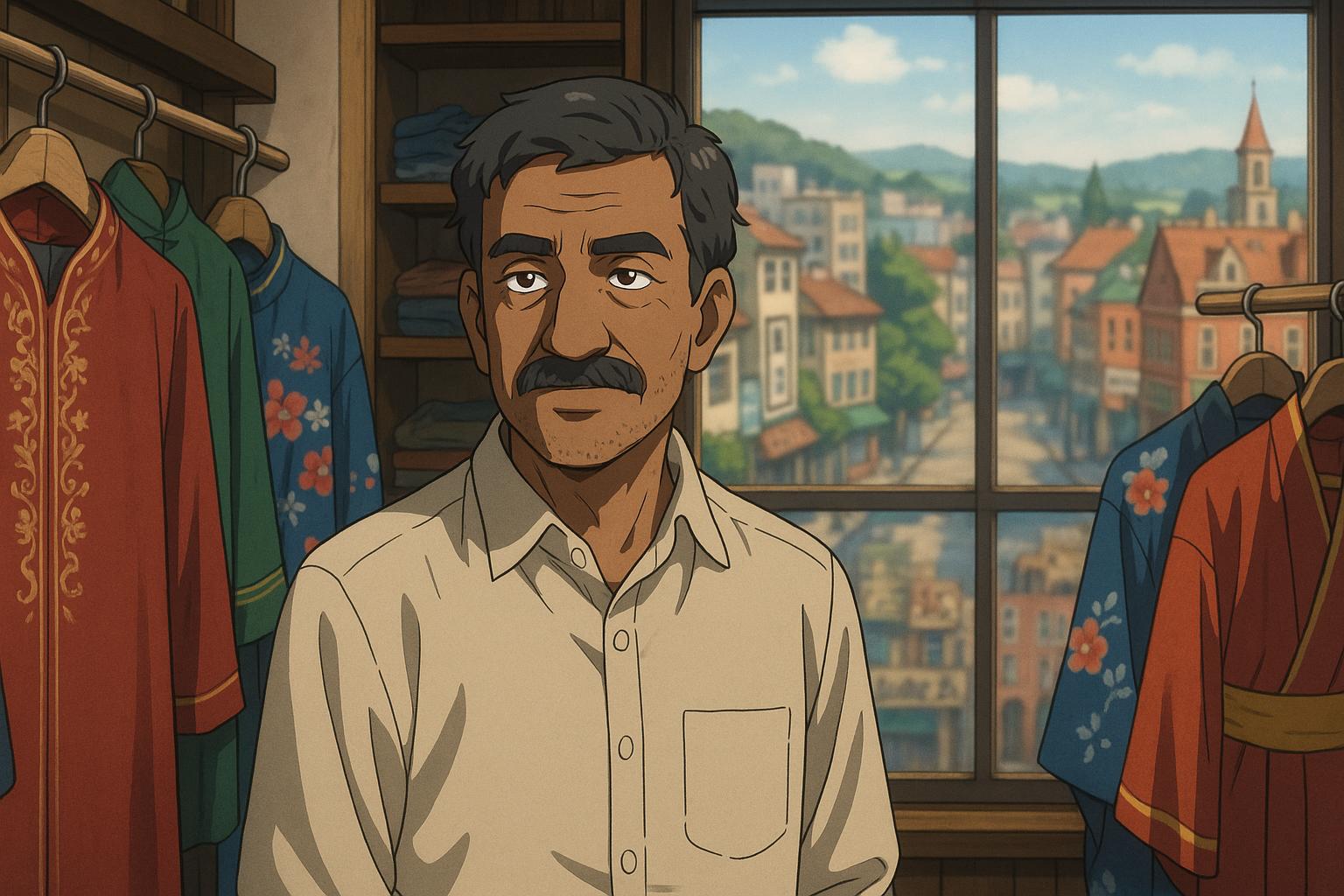Tariq Hussain's life in Nelson, Lancashire, encapsulates the complexities of integration in a town that has experienced significant demographic shifts over the past few decades. The 57-year-old, who runs a modest business selling traditional Asian women's clothing, finds himself largely disconnected from current events and policies that could directly impact him and his family. He admits, "I speak little English even though I have been in this country for quite a long time." His routine revolves around conversations in Punjabi, with a network of relatives back in Pakistan, rather than engaging with the broader community or keeping up with British news.
Nelson, formerly known for its vibrant cotton weaving industry during the industrial revolution, now struggles with an immigration narrative that has become a flashpoint for socio-political debates in the UK. Recent census data unveiled a staggering statistic: approximately 38 per cent of residents in the Pendle borough, which encompasses Nelson, cannot speak English proficiently. This figure marks the borough as the highest in the UK for language barriers among non-English speakers. The vast majority of these individuals, like Mr Hussain, reside in Nelson, a town that has transformed from a predominantly white community to one where the Asian population—mostly of Pakistani descent—now constitutes around 52.6% according to the latest census.
The influx of Pakistani immigrants began in the 1950s and 1960s when mill owners sought labourers to fill gaps left by industrial decline. This historical recruitment effort has spiralled into a community that now sees 19 mosques within a short distance of one another, standing testament to a vibrant yet isolated culture. Yet, this newfound demographic reality has not come without challenges. As people from various backgrounds settle in Nelson, including asylum seekers and recent migrants from Europe, the integration of these groups into wider societal frameworks—particularly with regard to language skills—has declined. As local community organiser Azhar noted, "A lot of our women don't speak English because they don't go out to work."
The 2021 Census revealed a drop in the percentage of the population identifying as White British, which decreased by over 5,700. Over 9,000 new residents identified as Asian or British Asian: Pakistani, accounting for an increase to 25.6% of Pendle’s demographic. This substantial demographic change has led to a perception of Nelson as a "valley of strangers," with deepening divides as older, White residents move on to outlying areas in search of familiarity and community cohesion.
The economic landscape of the town has mirrored these changes; Pendle ranks among the highest for child poverty in the UK. As of the latest reports, 43.2% of children in the borough are living in relative poverty, a sharp rise from previous years. Local authorities have attempted to address these issues with support measures, yet the multi-faceted challenges posed by integration, language barriers, and socioeconomic disparity loom large.
Tensions brew not only within the local community but echo the national sentiment regarding immigration policies. Labour leader Sir Keir Starmer has signalled a potential overhaul of the UK's immigration framework, emphasising the necessity for robust English language proficiency as a cornerstone of future legal entry into the country. Yet, for many residents like Zafar Ali, who has lived in Nelson since 1968, the integration of new arrivals is hampered by systemic issues. He lamented, "It's all wrong... no Government is bothered if people integrate."
In stark contrast, newcomers like Baligha Sahfi, who recently moved from Pakistan after marrying a local resident, express an eagerness to integrate and adapt. Her realisation of the town’s linguistic barriers is met with determination as she actively seeks to improve her English: "I couldn't believe that there were people living here who didn't speak any English... I love Nelson and living in England."
The cultural tapestry of Nelson continues to evolve, replete with its struggles and triumphs. The sound of Punjabi or Urdu fills the air, creating a sense of community for many, yet highlighting the disparities that separate them from their English-speaking neighbours. The town now finds itself at a crossroads, where the past intermingles with the present, reflecting broader societal issues facing modern Britain.
As sociocultural dynamics overlap with the pressing realities of economic deprivation and language barriers, it is evident that Nelson’s residents, both old and new, are navigating a landscape fraught with challenges. The quest for integration and mutual understanding remains an ongoing journey within this once vibrant but now divided community.
Reference Map
- Paragraphs 1, 2, 3, 4, 5, 6, 7, 8, 9, 10
- Paragraphs 1, 2, 3, 4, 5
- Paragraphs 9, 10
- Paragraphs 2, 3, 6
- Paragraphs 6, 8
- Paragraphs 7, 10
- Paragraph 6
Source: Noah Wire Services
